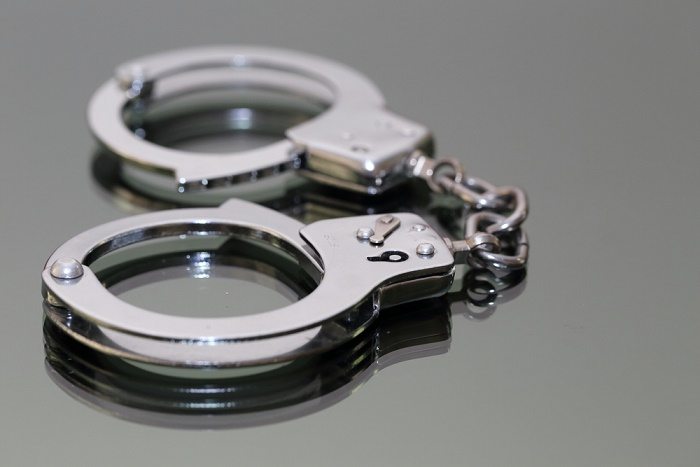Nebraska Juveniles Face Solitary Confinement for Having ‘Too Many Books’
Nebraska juveniles are routinely placed in isolation for days and weeks at a time, defying best practices developed by mental health experts, a report finds.

Jacob Rusher was first sent to solitary confinement at the Douglas County Youth Facility in Omaha, Nebraska “for his own good,” because he had a broken ankle.
Rusher was in and out of the juvenile detention center three times between the ages of 15 and 17, and each time, he was subject to solitary confinement, where he was locked away from teachers, peers, and regular visits from mental health counselors for weeks at a time.
“It was 23 hours a day alone, no TV or radio,” he told the ACLU of Nebraska. “You were in there with one book, a blanket, a mat and a toothbrush. No art materials, no hobby items—everything was considered contraband.”
He developed a pacing habit, walking from one wall to another, imagining he was a character in a book.
Rusher’s story is included in a new report from the ACLU of Nebraska, “Growing Up Locked Down,” that examines solitary confinement in the state’s juvenile detention facilities. Based on a nearly yearlong investigation of written policies and internal detention log books obtained through public records requests, the report concludes that Nebraska juveniles are routinely placed in isolation for days and weeks at a time, defying best practices developed by mental health experts.
Some facilities that confined juveniles had no written policies regulating solitary confinement and collected no data on the practice.
Researchers found that at some county detention facilities, young people were placed in solitary confinement for up to six hours for a range of trivial offenses, including having “too many books in room again,” “talking in hallway,” and “putting the string of his sock in his mouth.”
“The results are shocking and heartbreaking,” Danielle Conrad, the executive director of the ACLU of Nebraska, told Rewire. “We have some real work to do even on basic issues: reporting, and establishing basic policies.”
Nebraska had more than 400 kids living in juvenile detention in 2013, according to the Annie E. Casey Foundation’s Data Center. Though the number might seem small, the rate of imprisonment is high compared to other states: Roughly 204 Nebraska kids per 100,000 were confined in 2013. Fifty-five percent of juveniles in detention are children of color, as the report notes, though the state is 80 percent white.
The authors of the report define solitary confinement as “any physical and social isolation of children in juvenile detention facilities,” not including a short “time-out.” Sometimes called “room restriction” or simply “isolation,” the practice is considered particularly devastating to children because they aren’t fully developed mentally or physically.
Prolonged solitary confinement is linked to depression, anxiety, and psychosis, and the majority of suicides in juvenile correctional facilities occur when the person is in solitary confinement, according to the American Academy of Child and Adolescent Psychiatry, which opposes the practice.
The United Nations Rules for the Protection of Juveniles Deprived of their Liberty prohibits the solitary confinement of young people, calling it “cruel” and “inhuman.”
A number of Nebraska’s neighboring states, including South Dakota, Minnesota, Iowa, and Arkansas, have policies that limit the use of solitary confinement for juveniles to five days or fewer.
The Department of Health and Human Services, which operates two of the nine juvenile detention facilities in Nebraska, told Rewire in a statement that “DHHS supports the research about the detriments of placing youth in isolation,” and has worked to address the issue for several years.
“The average length of stay in isolation has dropped about 50 percent at the Youth Rehabilitation and Treatment Centers from 2012 to 2014,” Russell Reno, a DHHS spokesperson, said in an email.
Reno said the department uses solitary confinement as a last resort, provides youth with due process and an appeals process, and administers mental health exams for young people placed in isolation for more than a few hours. He added that staff must obtain permission from senior management to extend isolation beyond four hours, and are trained in alternatives to the practice.
The Nebraska Department of Correctional Services (NDCS), which operates two of the state’s juvenile detention facilities, told KETV News that it is working with the Vera Institute of Justice and the Safe Alternatives to Segregation Initiative to develop rules and regulations around solitary confinement at their facilities.
“NDCS uses restrictive housing as necessary for youthful offenders adjudicated as adults and sentenced to its custody. There are processes in place to ensure a review by the facility warden as well as to provide the individual with a voice to appeal the decision,” the NDCS said in a statement.
Conrad said the ACLU hopes to work with policymakers in Nebraska to mandate basic reporting and oversight of solitary confinement in juvenile facilities, with the ultimate goal of banning the practice altogether.
“While we see differences from facility to facility, the bottom line is nobody is really adhering to best practices,” Conrad said. “We can and must do better.”

